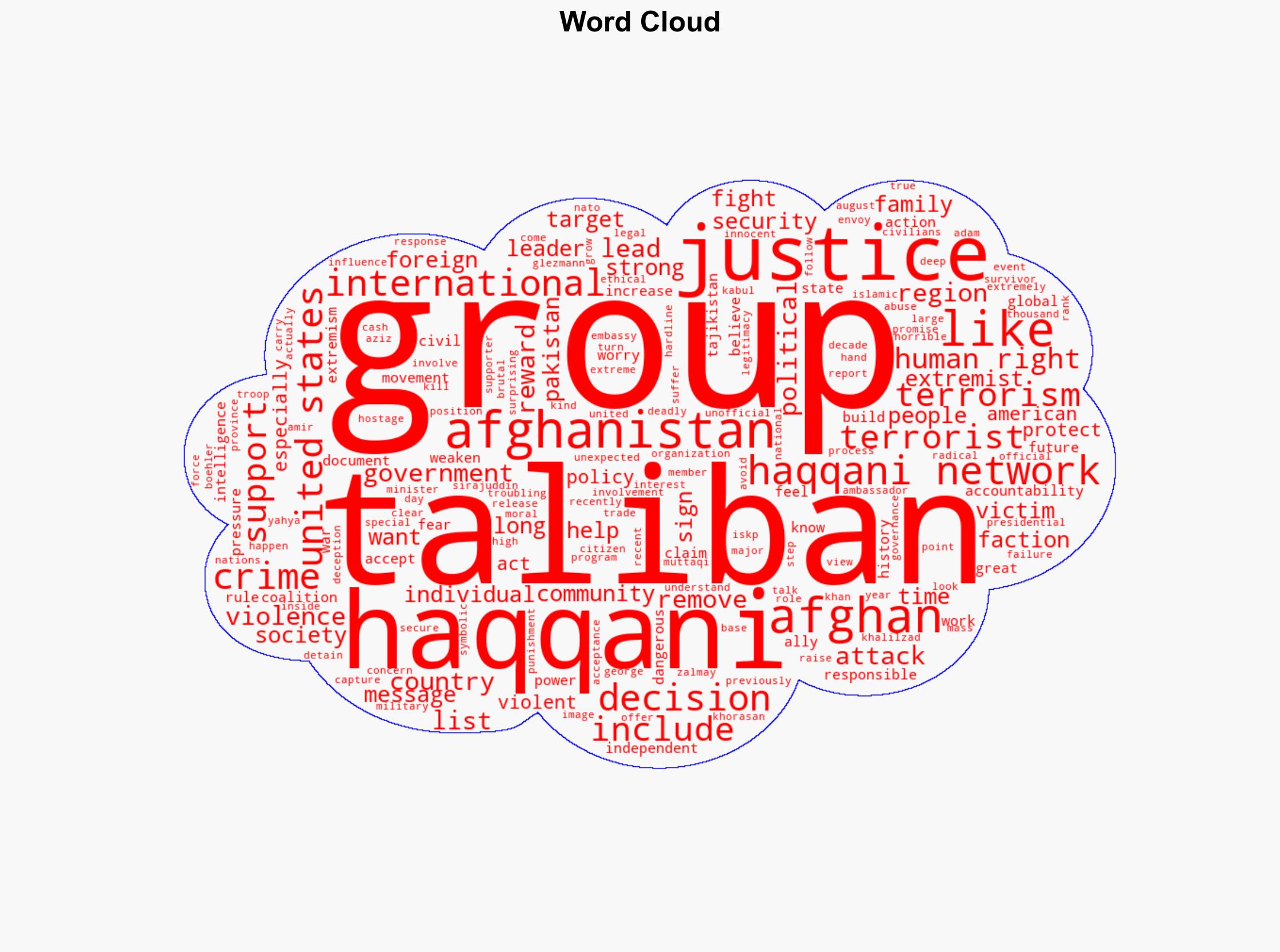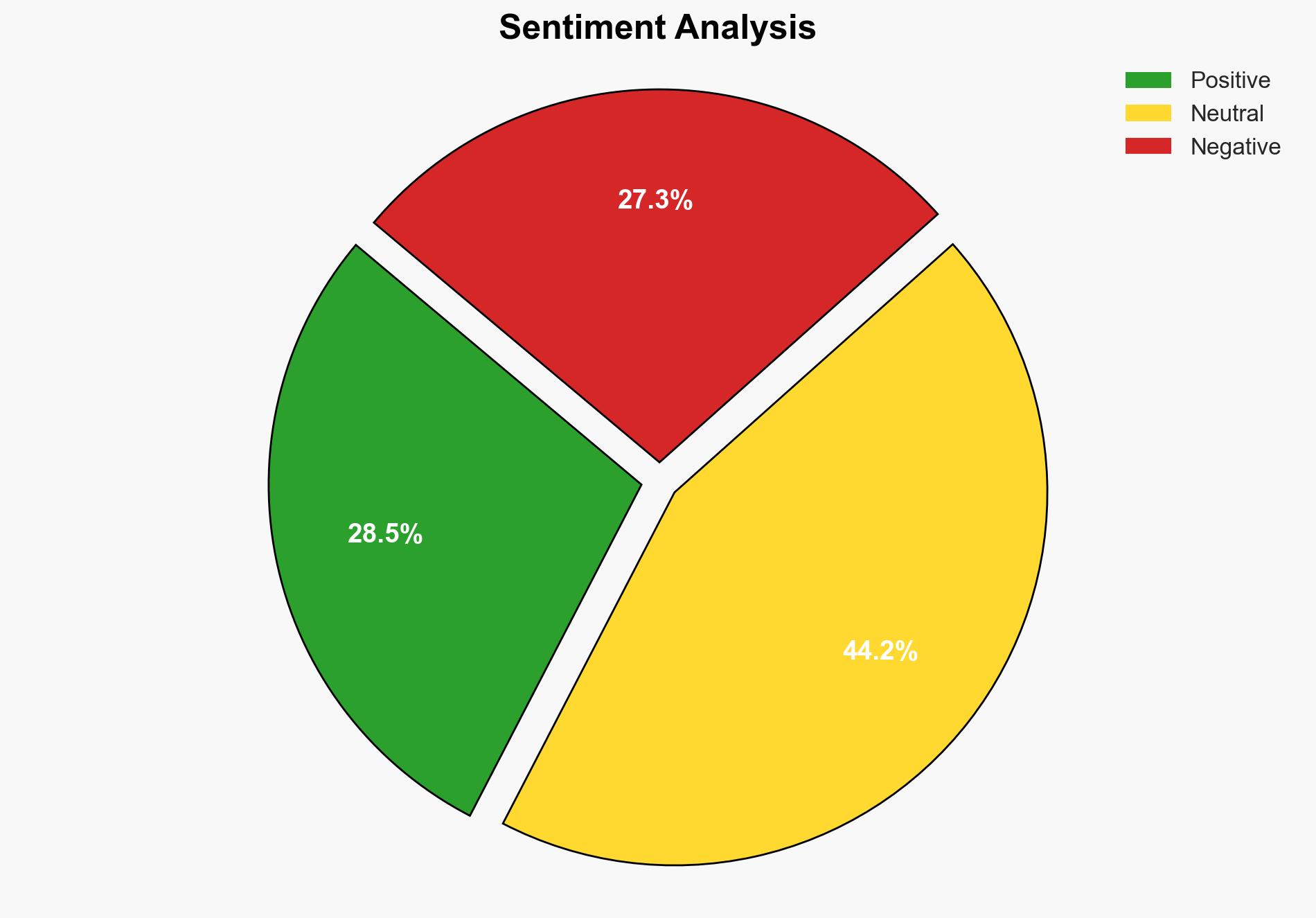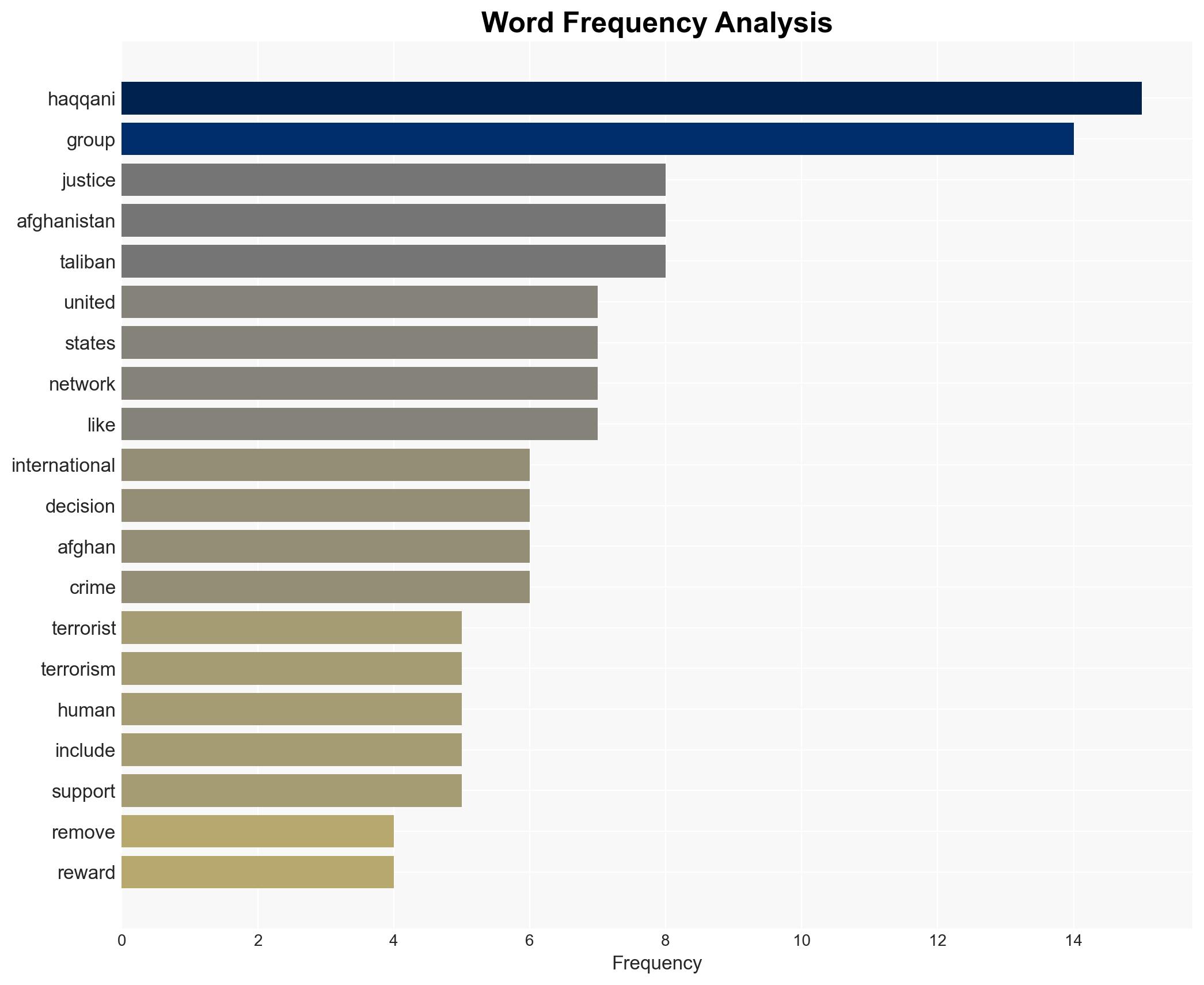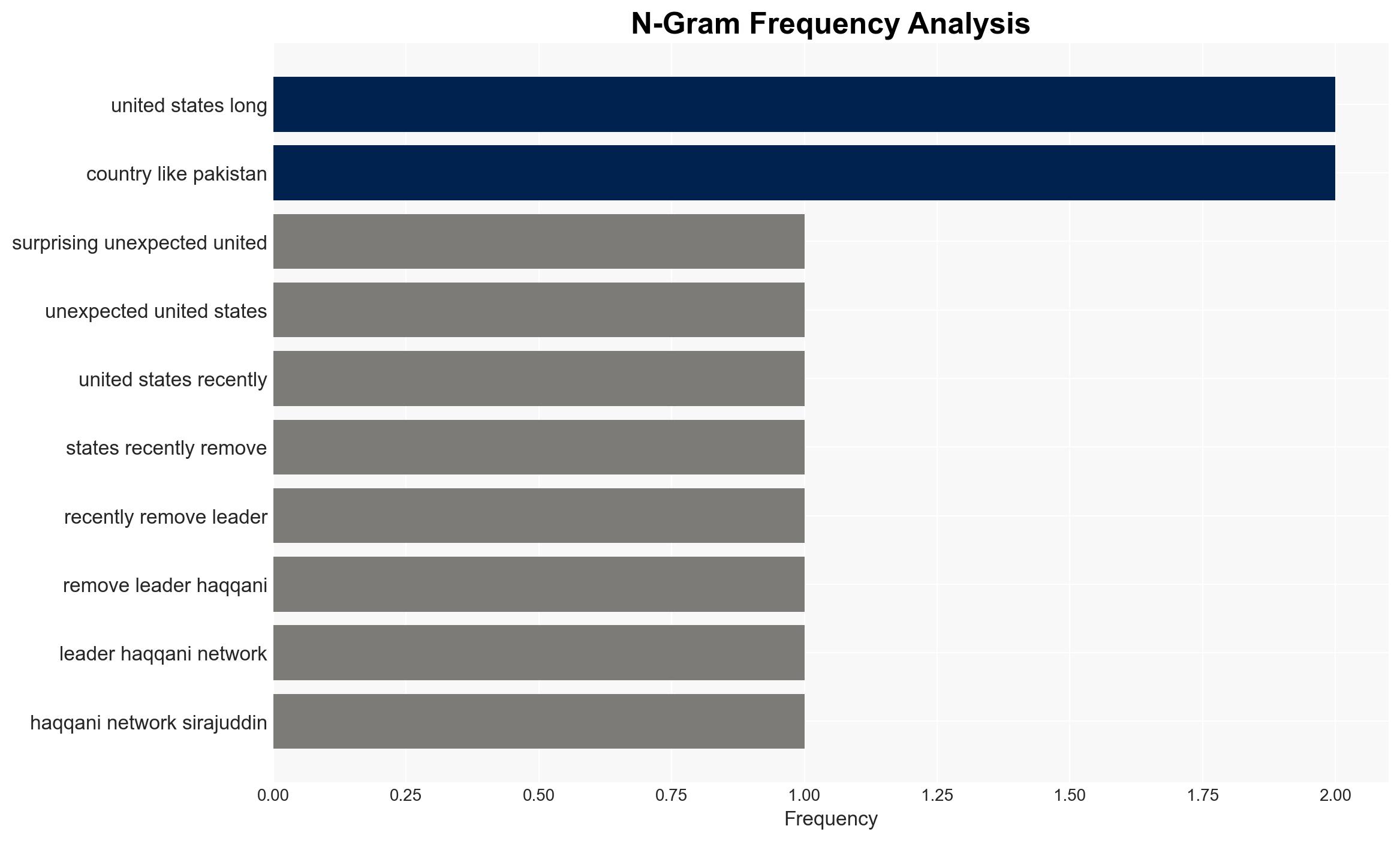The Message and Consequences of Removing Haqqani Network Leaders From the US Rewards for Justice List – The Diplomat
Published on: 2025-04-08
Intelligence Report: The Message and Consequences of Removing Haqqani Network Leaders From the US Rewards for Justice List – The Diplomat
1. BLUF (Bottom Line Up Front)
The recent decision by the United States to remove Sirajuddin Haqqani, Yahya Haqqani, and Aziz Haqqani from the Rewards for Justice list sends a potentially troubling message regarding the global fight against terrorism. This action may undermine the perceived commitment to justice and human rights, particularly among Afghan victims and their families. The removal could inadvertently legitimize the Haqqani Network, a faction with a history of violent extremism, and may weaken international counterterrorism efforts.
2. Detailed Analysis
The following structured analytic techniques have been applied for this analysis:
General Analysis
The removal of key Haqqani Network leaders from the US Rewards for Justice list is perceived as a symbolic act that may weaken the United States’ stance on counterterrorism. The Haqqani Network has been responsible for numerous deadly attacks in Afghanistan, targeting civilians, government officials, and international forces. The decision may be interpreted as an unofficial acceptance of the network’s legitimacy, potentially empowering the group within Afghanistan’s political landscape. This move could also damage the credibility of the US in its commitment to democracy, justice, and human rights.
3. Implications and Strategic Risks
The decision poses several risks:
- National Security: Potential increase in terrorist activities and influence of the Haqqani Network within Afghanistan.
- Regional Stability: Strengthening of extremist factions could destabilize the region, affecting neighboring countries.
- Economic Interests: Heightened security risks may deter international investment and aid in Afghanistan.
The empowerment of the Haqqani Network could lead to increased repression and violence against vulnerable groups, including religious minorities and human rights activists.
4. Recommendations and Outlook
Recommendations:
- Reassess the decision to remove Haqqani leaders from the Rewards for Justice list to reinforce commitment to counterterrorism.
- Enhance diplomatic efforts to engage with international partners in a unified approach to combat terrorism.
- Implement measures to protect vulnerable communities in Afghanistan from potential backlash.
Outlook:
Best-case scenario: Re-engagement with international partners leads to a reinforced global counterterrorism strategy, mitigating the empowerment of extremist factions.
Worst-case scenario: The Haqqani Network gains significant influence, leading to increased violence and destabilization in Afghanistan and the region.
Most likely outcome: Continued international scrutiny and pressure may lead to a partial reversal or modification of the decision, balancing political and security interests.
5. Key Individuals and Entities
The report mentions significant individuals such as Sirajuddin Haqqani, Yahya Haqqani, Aziz Haqqani, George Glezmann, Adam Boehler, Zalmay Khalilzad, and Amir Khan Muttaqi. It also references the Haqqani Network, the Taliban, and the United States as key entities involved in the developments discussed.





